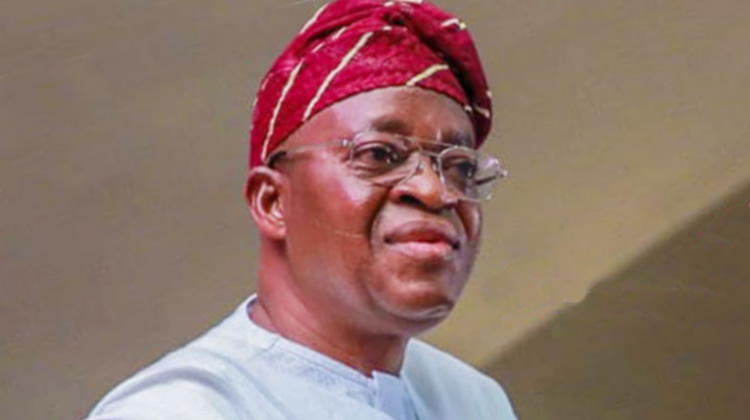Paragraph 1: A New Dawn for Nigerian Fisheries
Nigeria, a nation heavily reliant on fish imports to meet its domestic demand, is on the cusp of a transformative shift in its fisheries sector. Adegboyega Oyetola, the Minister of Marine and Blue Economy, has unveiled an ambitious vision aimed at not just achieving self-sufficiency in fish production but also establishing Nigeria as a global player in aquaculture. This bold initiative seeks to dramatically ramp up domestic fish production while simultaneously reducing the nation’s dependence on imported fish. This represents a significant departure from the current status quo and holds the promise of bolstering food security, generating employment opportunities, and enhancing Nigeria’s export competitiveness.
Paragraph 2: Collaborative Engagement and Stakeholder Inclusion
The Ministry of Marine and Blue Economy has embarked on a proactive approach to stakeholder engagement, recognizing the crucial role of collaboration in achieving its objectives. A high-level consultative meeting was convened in Abuja, bringing together representatives from key fisheries and aquaculture associations across the country. This forum provided a platform for open dialogue, allowing stakeholders to voice their concerns and contribute to shaping the future of the sector. Participants included the Fisheries Cooperative Federation of Nigeria, Tilapia Aquaculture Developers Association of Nigeria, Catfish Farmers Association of Nigeria, Women in Fish Farming and Aquaculture, and the Practicing Farmers Association of Nigeria, among others. This broad representation ensured diverse perspectives were considered.
Paragraph 3: Addressing the Challenges Head-On
The consultative meeting unearthed a range of critical challenges hindering the growth of the Nigerian fisheries sector. These included overfishing, which depletes fish stocks and threatens ecosystem health; environmental degradation impacting aquatic habitats; limited access to affordable financing, hindering investment in modern aquaculture practices; post-harvest losses due to inadequate storage and transportation infrastructure, leading to significant wastage; and the rising cost of imported fish feed, further increasing production costs for local farmers. The discussions also highlighted concerns about low youth involvement, bureaucratic bottlenecks such as multiple taxation by local government authorities, and the need for stronger market linkages to connect fish farmers with consumers.
Paragraph 4: A Multi-Pronged Strategy for Transformation
Minister Oyetola outlined a comprehensive strategy to address the challenges and unlock the full potential of the Nigerian fisheries sector. Recognizing the need for financial support, the Ministry is actively engaging with the World Bank to secure funding for fish farmers. This financial intervention will be crucial for enabling farmers to adopt modern technologies, expand their operations, and enhance productivity. Furthermore, the Ministry is collaborating with the Nigerian Agricultural Insurance Corporation to provide affordable and accessible insurance coverage, mitigating the risks faced by fish farmers. Inter-ministerial cooperation is also being prioritized, with ongoing discussions with the Federal Ministry of Water Resources to replicate successful aquaculture models, such as the one at the Oyan Dam, across the country.
Paragraph 5: Empowering Youth and Women in Aquaculture
In alignment with President Bola Tinubu’s Renewed Hope Agenda, which emphasizes youth engagement and economic diversification, the Ministry is placing particular emphasis on empowering youth and women in the fisheries sector. Recognizing their potential as drivers of innovation and growth, the Ministry is developing targeted initiatives to encourage their active participation. Start-up grants and other empowerment programs are being planned to provide young entrepreneurs and women with the resources they need to establish and expand their aquaculture ventures. These initiatives not only contribute to increased food production, but also play a vital role in addressing unemployment and promoting economic inclusivity.
Paragraph 6: Fostering Sustainable Growth Through Partnerships
The Ministry of Marine and Blue Economy recognizes the importance of fostering strong partnerships to drive sustainable growth in the fisheries sector. Collaboration with local and international stakeholders, including development agencies, research institutions, and private sector actors, is seen as crucial for sharing best practices, accessing technical expertise, and attracting investment. The Ministry reiterated its commitment to building enduring partnerships with cooperative societies, recognizing their pivotal role in driving inclusive growth and empowering local communities. The emphasis on enterprise-driven models and strengthening institutional frameworks further underscores the Ministry’s commitment to creating a vibrant and sustainable fisheries sector capable of meeting Nigeria’s growing demand for fish while contributing to economic development. The meeting served as a concrete manifestation of the Ministry’s commitment to stakeholder engagement, paving the way for a collaborative journey towards transforming the Nigerian fisheries sector.


